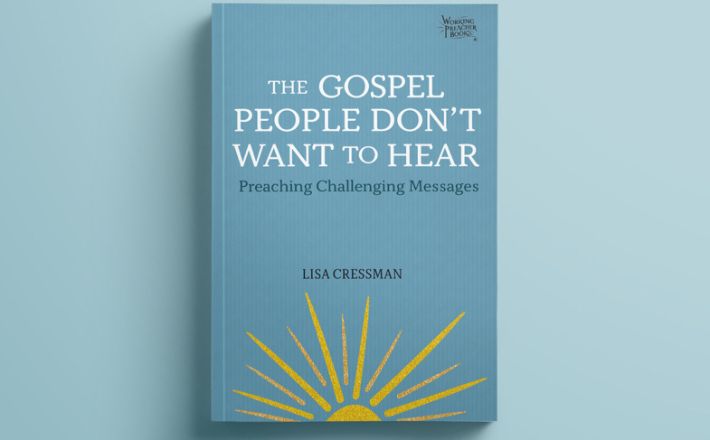Preachers need to “let the sky fall,” says Lisa Cressman, founding steward of Backstory Preaching and author of The Gospel People Don’t Want to Hear in the Working Preacher Books series. She’s invoking the fear in the children’s story “Chicken Little,” but noting that each listener to any sermon has their own pieces of the “sky” that they put energy into holding up, for fear of what would happen if they let go.
The life that most of us have known and that the privileged have enjoyed is falling apart on a global scale. Systemic changes are affecting daily lives worldwide. The things we value—our relationships, our identity, our livelihood—are all under threat. We may not yet be willing to let go of these things, but they are being affected regardless, because of changes far beyond our powers.
So much of the distress around us can be described as grief over a world that is changing. Anger, polarizing speech, sadness, and anxiety all stem from grief. So much of our energy is going into holding up “pieces of the sky.” We think it’s going to be the end of us if we let them go. But what if, instead, we acknowledge the grief and let those things go, in order to genuinely live a life of resurrection?
Preachers can invite listeners to let those pieces of the sky fall. Then we can redirect our energy to things that better testify to the gospel of unconditional love and resurrection.
What makes a sermon challenging?
A challenging sermon is not necessarily so because of the issue of the day or politics. It is challenging because somebody feels threatened; they are hearing that they might have to let go of some piece of their sky that they hold dear.
What am I being asked to give up for the sake of the gospel? If a sermon gets at what’s happening in the hearts and souls of those who feel threatened, it will address the issues of the day anyway. These are some questions for getting there:
- What is at stake for people?
- What are they afraid to lose?
- What do they believe they cannot live without?
They are all another way of saying “I really believe that death is the end, and there can’t be resurrection.”
Framing the task with invitation
The bigger the congregation, the more different pieces of sky people are trying to hold up. So what do we do when we, as the preacher, rip out of somebody’s hands the piece of sky that is actually what’s keeping them going? Cressman describes some of her techniques for introducing the task of letting go, without forcing it upon hearers:
- Present the gospel in such a way that it sounds invitational: What if? What might be? How do we reconcile one thing and another thing? Hearers can make of that what they will, depending on whether they’re ready.
- Establishing mutual trust between the preacher and listener is key: through reliability, competence, and sincerity. These key qualities go both ways between listeners and preachers. The preacher can also help deepen listeners’ trust in God, which is key when there are so many things we cannot reconcile.
- Get to know your congregation, to build trust and so you know what pieces of the sky they are holding up. Who do people see themselves to be in relation to the things and people important to them?
- Anytime there’s a change, we no longer understand who we are in relation to the change or the loss. But if we understand ourselves primarily or fundamentally as “children of God,” then every other identity can be lost and we can still go on. There are sacrifices to following Jesus.
- What does social media do to the process of building trust? Whatever we put out there is out there forever. Remember, preachers: Preaching is your life, so you are always preaching. Discern the importance of congruency between who you are and what you preach.
- When we say something that turns out to be a trigger for someone, we have to ask what really matters, what frightened them in that? What was at risk? What of their identity, livelihood, or relationship with God is put at risk by what was said? How might God address that to say, “Do not be afraid”?
Finally, Cressman encourages self-compassion for preachers. If we let the mistakes we make get to us, we will cease to function. We must hold our mistakes more lightly.
For more on this volume in the Working Preacher Books series, The Gospel People Don’t Want to Hear: Preaching Challenging Messages, listen to a podcast episode or watch it on YouTube, in which Rolf Jacobson and Karoline Lewis discuss the book with author Lisa Cressman.

